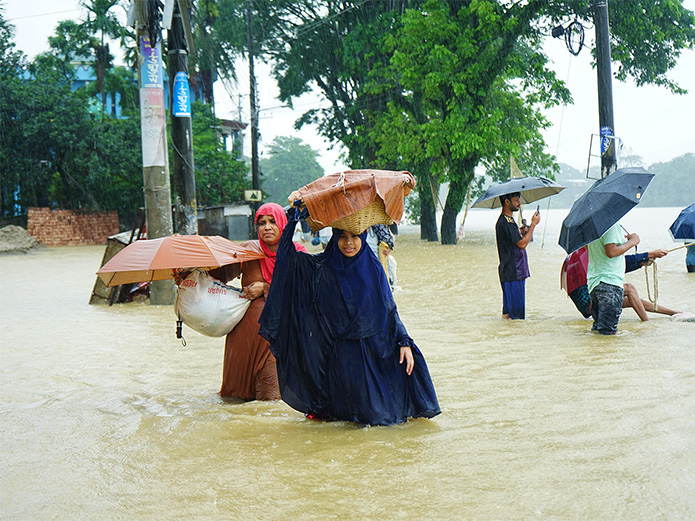Publications
A SYSTEMIC REVIEW OF GUIDING LEGAL AND POLICY FRAME WORK ON CLIMATE-INDUCED LOSS AND DAMAGE
15/7/25

People heading to a safe place during heavy flooding in Sylhet, Bangladesh in June 2022. Photo credit: SM AKBAR ALI PJ via Shutterstock
Prior to the establishment of the Warsaw International Mechanism in 2013, climate-induced loss and damage (CILD) was not a significant aspect of global climate change conversations. This was followed by tangible financial concessions during COP27, signalling further global commitments. This research examines the legal perspectives of CILD, contextualising the CILD regime in the light of legal principles around climate change, liabilities, compensation and other relevant principles. The overarching research objective is to assess guiding legal and policy frameworks on CILD and identify areas for improvement in policy development and decision-making at the national level. Through the application of the Preferred Reporting Items for Systematic Reviews and Meta-Analyses (PRISMA) protocol version 2020, a systematic review of literature on legislation and other ethical and normative frameworks relating to CILD, human rights, and climate change action is performed. Both the Scopus and Web of Science databases are used to retrieve data. The key findings are that the legal regime for CILD is an emerging area at the national and sub-national levels. Additionally, CILD policies at various levels do not adequately incorporate structures for liability, compensation, and human rights considerations, as well as the necessity for collaboration across governance levels. Based on the findings, individual governments must determine suitable liability and compensation regimes that address CILD within their countries





Watch the video here:


